One of the most popular weight loss methods without any surgical intervention is Gastric Balloon! The procedure is done by endoscopy and takes only around 20 minutes. With no hospitalization needed and with affordable price, gastric balloon might help you lose weight!
A gastric balloon, also known as an “intragastric balloon” (IGB), sometimes a “stomach balloon”, is a medical tool that is inserted temporarily in the patient’s stomach to make the patient feels full with less food. In this way, weight loss is provided after the operation. A gastric balloon procedure is a non-surgical weight solution and a bariatric procedure.
A gastric balloon may be an option for you if you have tried diet and exercise for a long time but can not reach your goals in terms of losing weight.
On the other hand, even after having a gastric balloon operation, you should change your lifestyle permanently and keep dieting and exercising.
In this article, we mention the benefits of the gastric balloon which is a nonsurgical weight loss solution. We will also talk about how the gastric balloon works and the potential risks and side effects of the gastric balloon. Finally, you will learn who is eligible for a gastric balloon.
The gastric balloon is a non-surgical alternative to bariatric surgeries. It is a safe and effective procedure and is preferred by more people who don’t like to have surgery to lose weight and get a healthier life. It reduces the risks related to obesity.
After the procedure, patients living with gastric balloons, start eating less and receiving fewer calories which causes weight loss.
Generally, the benefits of the gastric balloon can be lined up as below:
In addition to these items, patients after the gastric balloon procedure, are free to eat any kind of food and there are no restrictions on that.
You may ask “How does the gastric balloon work?” A gastric balloon is a medical tool, one of the bariatric procedures, inserted through the mouth to the stomach and it is one of the most known endoscopic procedures.
The gastric balloon is filled with liquid or air. The procedure aims to help people by making them eat less but feel full faster. A gastric balloon is a temporary tool. It stays in about six months at most, and then easily removed. The gastric balloon procedure takes about 30 minutes and you can go home three hours after the procedure.
If you consider a gastric balloon procedure and aiming for weight loss, you should remember that it can not make you lose weight like a magician disappears from an object. You should choose a healthy lifestyle with regular exercise and a balanced diet.
For more information on the gastric balloon procedure, feel free to contact our patient support staff. As Ekol Health Group and Ekol International Hospitals, we are ready to serve you at any time.
Post-placement care is as important as the procedure itself. After your gastric balloon procedure is finished, in the following week, you may feel discomfort. Pain and nausea occur in about one-third of people who had gastric balloon procedures. These symptoms last a couple of days after the balloon is inserted. After going back home, you should follow a special diet to reduce the side effects of the gastric balloon.
You should try to avoid unnecessary physical activity in the first week after the gastric balloon is placed. When you get used to it, you can back to normal activities of your daily life. Your diet following the gastric balloon procedure starts with fluids, continues with soft food, and finally back to regular food. Water, low calory fruit squash, clear soup or broth, weak tea, or coffee can be some parts of your diet plan.
Another important point is that you should be careful eating and drinking slowly, as you now become full up much quicker than before the procedure.
All surgical procedures have potential risks and side effects. The best thing to do before any surgery is to learn about them and not be surprised if you experience some of them after having surgery. If your surgeon considers you as a good candidate, there are still some risks and side effects. However as general anesthesia is not used in gastric balloon procedures, the risk of complications is reduced.
One potential risk of gastric balloon is balloon deflation. If that happens, the balloon moves through your digestive system. The surgeon may decide then, additional procedures, including surgery. Some other potential risks of the procedure of gastric balloon are acute pancreatitis, overinflation, ulcer, or a hole in the stomach wall. Nausea, vomiting, and back pain are some of the common side effects of the gastric balloon.
Who should choose a gastric balloon is the question you answer if you consider having this procedure.
First of all, you should know that as is with any other procedure, the gastric balloon is not for everyone. A gastric balloon may be suitable for you, if:
Even if you are overweight, the gastric balloon is not for everyone who is overweight. The patient eligible for the procedure is decided by a medical expert. Your medical expert will give the final decision, on if the gastric balloon is beneficial for you, after monitoring you before the procedure.
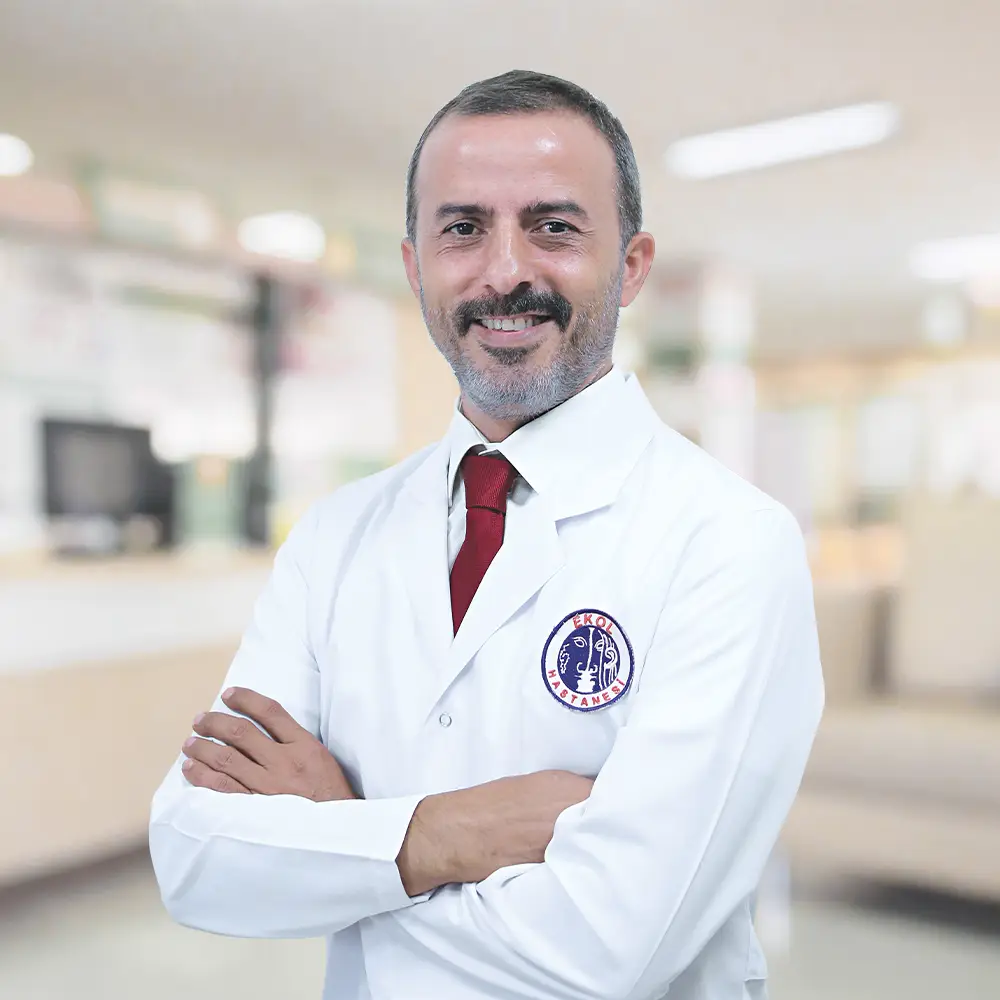 He completed his medical education at Dokuz Eylul University Faculty of Medicine between 1995 and 2001. He specialized in General Surgery at Ankara Training and Research Hospital between 2001 and 2006. He worked as a General Surgery Specialist at Ankara Training and Research Hospital between 2006 and 2008 and later at Ordu State Hospital between 2008 and 2013. In 2016, he received the title of Associate Professor in the Department of General Surgery, Faculty of Medicine, Izmir University. In 2015, he received the Turkish Surgical Association Proficiency Exam (Board) Certificate of Achievement. He is a member of Turkish Surgical Association, Turkish Colon and Rectum Surgery Association, National Endoscopic Laparoscopic Surgery Association, Bariatric and Metabolic Surgery Association, and Hepatobiliary Surgery Association. Between 2014 and 2016, he taught many undergraduate and graduate courses at Izmir University Faculty of Medicine. He has conducted many national and international studies and these studies have received many citations. Assoc. Prof. Dr. Ömer Yoldaş speaks English fluently. He has two children.
Knowledge Domain: Obesity Surgery and Metabolic Surgery, Laparoscopic Reflux Surgery, Laparoscopic Gallbladder Surgeries, Gastric Balloon Application, Gastric filler Application, Laparoscopic Gastric and Intestinal Cancer Surgeries, Haemorrhoid Surgeries, Perianal Fistula Surgeries, Laparoscopic Abdominal and Groin Hernia Surgeries, Breast Cancer Surgeries, Thyroid Cancer and Goitre Surgeries.
He completed his medical education at Dokuz Eylul University Faculty of Medicine between 1995 and 2001. He specialized in General Surgery at Ankara Training and Research Hospital between 2001 and 2006. He worked as a General Surgery Specialist at Ankara Training and Research Hospital between 2006 and 2008 and later at Ordu State Hospital between 2008 and 2013. In 2016, he received the title of Associate Professor in the Department of General Surgery, Faculty of Medicine, Izmir University. In 2015, he received the Turkish Surgical Association Proficiency Exam (Board) Certificate of Achievement. He is a member of Turkish Surgical Association, Turkish Colon and Rectum Surgery Association, National Endoscopic Laparoscopic Surgery Association, Bariatric and Metabolic Surgery Association, and Hepatobiliary Surgery Association. Between 2014 and 2016, he taught many undergraduate and graduate courses at Izmir University Faculty of Medicine. He has conducted many national and international studies and these studies have received many citations. Assoc. Prof. Dr. Ömer Yoldaş speaks English fluently. He has two children.
Knowledge Domain: Obesity Surgery and Metabolic Surgery, Laparoscopic Reflux Surgery, Laparoscopic Gallbladder Surgeries, Gastric Balloon Application, Gastric filler Application, Laparoscopic Gastric and Intestinal Cancer Surgeries, Haemorrhoid Surgeries, Perianal Fistula Surgeries, Laparoscopic Abdominal and Groin Hernia Surgeries, Breast Cancer Surgeries, Thyroid Cancer and Goitre Surgeries.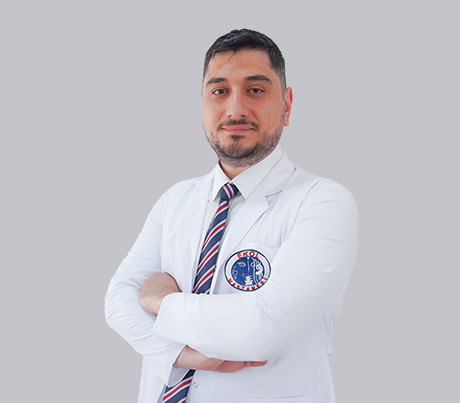 Date of birth
10.11.1987
Education and Expertise
Karadeniz Technical University Faculty of Medicine
Kocatepe University
Ankara University Faculty of Medicine
Konya Health Sciences University
Professional Interests:
Obesity (fatness) surgery and metabolic surgery
Laparoscopic reflux surgery
Laparoscopic gallbladder surgeries
Gastric balloon application
ERCP, EMR, ESD (Advanced Endoscopic procedures)
Laparoscopic pancreatic cancer surgery
Laparoscopic gastric and intestinal cancer surgeries
Hemorrhoid surgeries
Perianal fistula surgeries
Laparoscopic abdominal and inguinal hernia surgeries
Oncoplastic Breast cancer surgeries
Natural cancer surgery (NOSE)
Thyroid cancer and goiter surgeries.
Memberships to Scientific Organizations
Turkish Surgery Association
Turkish Obesity Surgery Association
Surgical Oncology Association
National Society of Endoscopic Laparoscopic Surgery
He is a member of the Bariatric and Metabolic Surgery Association.
Courses and Certificates:
Turkish surgical association proficiency exam (Board) certificate of achievement in 2018
He has more than 100 papers presented in national and international congresses and more than 50 articles published in international journals.
Foreign language
English
Date of birth
10.11.1987
Education and Expertise
Karadeniz Technical University Faculty of Medicine
Kocatepe University
Ankara University Faculty of Medicine
Konya Health Sciences University
Professional Interests:
Obesity (fatness) surgery and metabolic surgery
Laparoscopic reflux surgery
Laparoscopic gallbladder surgeries
Gastric balloon application
ERCP, EMR, ESD (Advanced Endoscopic procedures)
Laparoscopic pancreatic cancer surgery
Laparoscopic gastric and intestinal cancer surgeries
Hemorrhoid surgeries
Perianal fistula surgeries
Laparoscopic abdominal and inguinal hernia surgeries
Oncoplastic Breast cancer surgeries
Natural cancer surgery (NOSE)
Thyroid cancer and goiter surgeries.
Memberships to Scientific Organizations
Turkish Surgery Association
Turkish Obesity Surgery Association
Surgical Oncology Association
National Society of Endoscopic Laparoscopic Surgery
He is a member of the Bariatric and Metabolic Surgery Association.
Courses and Certificates:
Turkish surgical association proficiency exam (Board) certificate of achievement in 2018
He has more than 100 papers presented in national and international congresses and more than 50 articles published in international journals.
Foreign language
English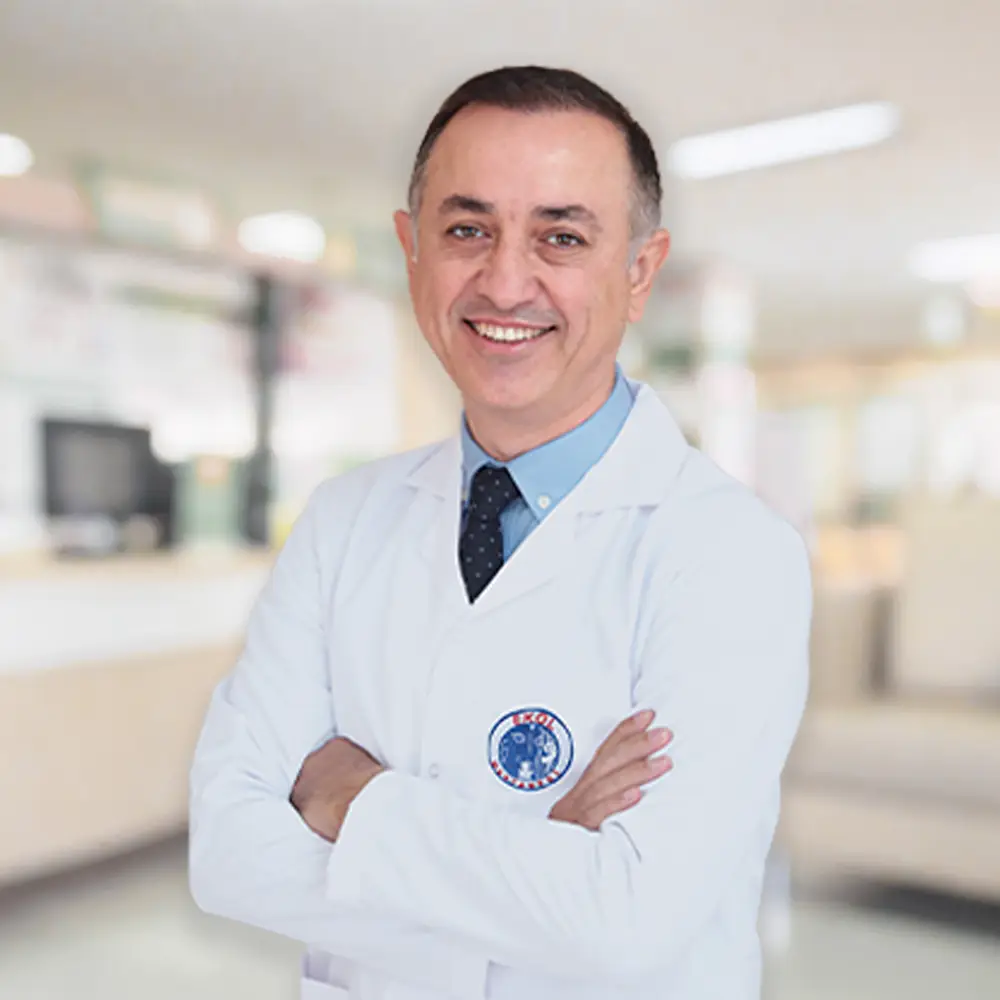 He completed his medical education at Osmangazi University Faculty of Medicine between 1990 and 1996, and his residency in General Surgery at Izmir Training and Research Hospital between 2004 and 2008. In 2008, he received the Turkish Surgical Association's Qualification Exam (Board) certificate of success. He is a member of Turkish Surgical Association, Turkish Colon and Rectum Surgery Association, National Endoscopic Laparoscopic Surgery Association, Bariatric and Metabolic Surgery Association. He worked as a lecturer at Istanbul Rumeli University between 2017 and 2020. He currently performs Laparoscopic Oncosurgery and Obesity Surgeries. He has many national and international studies and these studies have received many citations. Having a good command of English, Opr. Dr. Özgür Kavak is married and has two children.
Areas of interest: Laparoscopic Sleeve Gastrectomy, Laparoscopic Full Gastric Bypass, Laparoscopic Mini Bypass, Laparoscopic Type 2 Diabetes Surgery, Gastric Balloon Application with Endoscopic Method. In Non-Surgical Obesity Treatments: Stomach filler (Endoscopic), Laparoscopic Oncology Surgery (Colorectal, Stomach, Pancreas, Adrenal), Reflux - Gastric Hernia Surgery (Laparoscopic), Minimally Invasive Surgery, Laparoscopic Hernia Surgery, Endocrine Surgery (Thyroid - Breast Surgery), Haemorrhoid Surgery with Laser, Haemorrhoidopexy (LHP), Perianal Fistula Surgery with FILAC (Fistula Laser Closure) Method.
He completed his medical education at Osmangazi University Faculty of Medicine between 1990 and 1996, and his residency in General Surgery at Izmir Training and Research Hospital between 2004 and 2008. In 2008, he received the Turkish Surgical Association's Qualification Exam (Board) certificate of success. He is a member of Turkish Surgical Association, Turkish Colon and Rectum Surgery Association, National Endoscopic Laparoscopic Surgery Association, Bariatric and Metabolic Surgery Association. He worked as a lecturer at Istanbul Rumeli University between 2017 and 2020. He currently performs Laparoscopic Oncosurgery and Obesity Surgeries. He has many national and international studies and these studies have received many citations. Having a good command of English, Opr. Dr. Özgür Kavak is married and has two children.
Areas of interest: Laparoscopic Sleeve Gastrectomy, Laparoscopic Full Gastric Bypass, Laparoscopic Mini Bypass, Laparoscopic Type 2 Diabetes Surgery, Gastric Balloon Application with Endoscopic Method. In Non-Surgical Obesity Treatments: Stomach filler (Endoscopic), Laparoscopic Oncology Surgery (Colorectal, Stomach, Pancreas, Adrenal), Reflux - Gastric Hernia Surgery (Laparoscopic), Minimally Invasive Surgery, Laparoscopic Hernia Surgery, Endocrine Surgery (Thyroid - Breast Surgery), Haemorrhoid Surgery with Laser, Haemorrhoidopexy (LHP), Perianal Fistula Surgery with FILAC (Fistula Laser Closure) Method.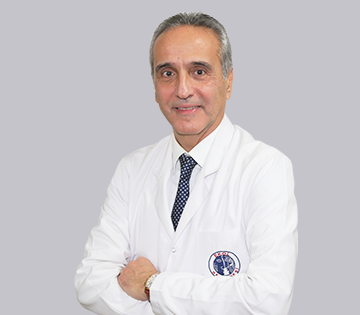 He graduated from Dokuz Eylül University, Faculty of Medicine. Between 1987 and 1991, he completed his specialization in general surgery at Buca SSK Hospital in Izmir. Between 1991 and 2016, he worked at Karşıyaka State Hospital, then until 2019 he worked as the General Surgery Specialist at Çiğli Training and Research Hospital. He is an active member of Turkish Surgical Association, Turkish Society of Colon and Rectal Surgery. He has experienced around 30,000 successful operations in the field of general surgery. Areas of interest: Laparoscopic gallbladder operations, gastrointestinal surgery, haemorrhoids and fissure surgeries, abdominal and inguinal hernia operations, breast cancer operations, thyroid cancer and goiter operations. Op. Dr. Attila El is married and has one child. He speaks fluent English.
He graduated from Dokuz Eylül University, Faculty of Medicine. Between 1987 and 1991, he completed his specialization in general surgery at Buca SSK Hospital in Izmir. Between 1991 and 2016, he worked at Karşıyaka State Hospital, then until 2019 he worked as the General Surgery Specialist at Çiğli Training and Research Hospital. He is an active member of Turkish Surgical Association, Turkish Society of Colon and Rectal Surgery. He has experienced around 30,000 successful operations in the field of general surgery. Areas of interest: Laparoscopic gallbladder operations, gastrointestinal surgery, haemorrhoids and fissure surgeries, abdominal and inguinal hernia operations, breast cancer operations, thyroid cancer and goiter operations. Op. Dr. Attila El is married and has one child. He speaks fluent English.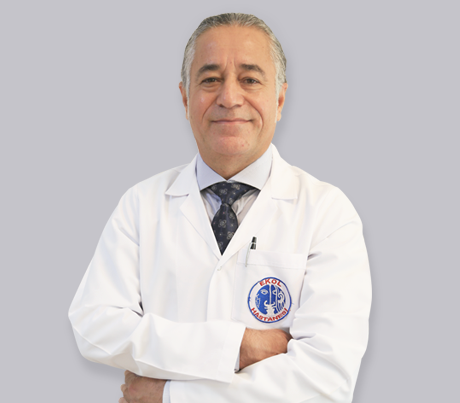 He completed his medical education at Istanbul University Cerrahpaşa Faculty of Medicine between 1986-1992. He completed his general surgery residency at İzmir Tepecik Training and Research Hospital between 1995-2000. In 2011, he received his education in the field of ERCP and Endoscopy at Afyon Kocatepe University. He worked as a specialist at Tepecik Training and Research Hospital, Karşıyaka State Hospital, Bakırçay University / Çiğli Training and Research Hospital between 2000-2021. He is a member of the Turkish Society of Surgery, Society of Endoscopic Laparoscopic Surgery, the bariatric and metabolic surgery society, and the Turkish Obesity Foundation. His special interest is Obesity Surgery.
The father of 2 children, Opr. Dr. Abdulkadir Korkmaz has a good command of English.
Areas of interest: Laparoscopic (closed) obesity (obesity) surgeries (sleeve – medicine stomach, gastric bypass) Gastric balloon application with endoscopic method in non-surgical obesity treatment Laparoscopic (closed) inguinal hernia surgeries Laparoscopic (closed) appendicitis surgeries Laparoscopic (closed) gallbladder surgeries Laparoscopic (closed) reflux - gastric hernia surgeries Goiter and Breast (breast cancer) surgeries Hemorrhoids treatment with laser Anescal surgery with laser
He completed his medical education at Istanbul University Cerrahpaşa Faculty of Medicine between 1986-1992. He completed his general surgery residency at İzmir Tepecik Training and Research Hospital between 1995-2000. In 2011, he received his education in the field of ERCP and Endoscopy at Afyon Kocatepe University. He worked as a specialist at Tepecik Training and Research Hospital, Karşıyaka State Hospital, Bakırçay University / Çiğli Training and Research Hospital between 2000-2021. He is a member of the Turkish Society of Surgery, Society of Endoscopic Laparoscopic Surgery, the bariatric and metabolic surgery society, and the Turkish Obesity Foundation. His special interest is Obesity Surgery.
The father of 2 children, Opr. Dr. Abdulkadir Korkmaz has a good command of English.
Areas of interest: Laparoscopic (closed) obesity (obesity) surgeries (sleeve – medicine stomach, gastric bypass) Gastric balloon application with endoscopic method in non-surgical obesity treatment Laparoscopic (closed) inguinal hernia surgeries Laparoscopic (closed) appendicitis surgeries Laparoscopic (closed) gallbladder surgeries Laparoscopic (closed) reflux - gastric hernia surgeries Goiter and Breast (breast cancer) surgeries Hemorrhoids treatment with laser Anescal surgery with laser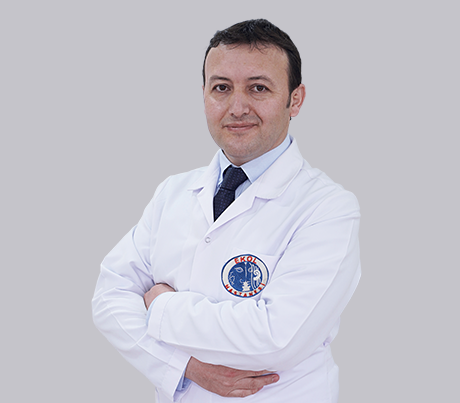 He completed his medical education at Dokuz Eylul University Faculty of Medicine between 1995-2001. He completed his general surgery residency at Eskişehir Osmangazi University Faculty of Medicine between 2002-2007. He is a member of Turkish Surgery Association, Turkish Colon and Rectum Surgery Association, National Endoscopic Laparoscopic Surgery Association, Bariatric and Metabolic Surgery Association, Hepatobiliary Surgery Association and Endocrine Surgery Association. He has many national and international studies and these studies have been cited many times.
Fluent in English, Opr. Dr. Rıza Özdemir is married and has one child.
Areas of interest:
• Obesity (fatness) surgery and metabolic surgery
• Laparoscopic reflux surgery
• Laparoscopic gallbladder surgeries
• Gastric balloon application
• Stomach injection application
• Laparoscopic gastric and intestinal cancer surgeries
• Haemorrhoid surgeries
• Perianal fistula surgeries
• Laparoscopic abdominal and inguinal hernia surgeries
• Breast cancer surgeries
He completed his medical education at Dokuz Eylul University Faculty of Medicine between 1995-2001. He completed his general surgery residency at Eskişehir Osmangazi University Faculty of Medicine between 2002-2007. He is a member of Turkish Surgery Association, Turkish Colon and Rectum Surgery Association, National Endoscopic Laparoscopic Surgery Association, Bariatric and Metabolic Surgery Association, Hepatobiliary Surgery Association and Endocrine Surgery Association. He has many national and international studies and these studies have been cited many times.
Fluent in English, Opr. Dr. Rıza Özdemir is married and has one child.
Areas of interest:
• Obesity (fatness) surgery and metabolic surgery
• Laparoscopic reflux surgery
• Laparoscopic gallbladder surgeries
• Gastric balloon application
• Stomach injection application
• Laparoscopic gastric and intestinal cancer surgeries
• Haemorrhoid surgeries
• Perianal fistula surgeries
• Laparoscopic abdominal and inguinal hernia surgeries
• Breast cancer surgeries